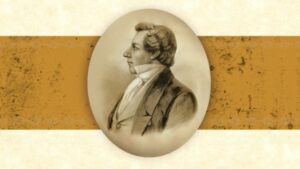Sign up for Meridian’s Free Newsletter, please CLICK HERE
Editor’s Note: Our friend and longtime Meridian writer Larry Barkdull passed away. To remember and honor him this is one of a series of his past articles that we are republishing regularly.
When we speak of Zion, sing of Zion, covenant for the establishment of Zion, long for Zion-we typically reference an ideal society. But what about the individual who becomes a citizen of a Zion society? What are his/her qualities? Am I a Zion person?
Latter-day Saints ought to know. We have more scriptures and prophets’ statements about Zion than any other people. One could hardly read a page of the Book of Mormon, Doctrine and Covenants or Pearl of Great Price without bumping into the term and its principles.
Why?
Because we Latter-day Saints have the singular charge to individually become Zion people so that we might be prepared for the collective establishment of the Lord’s Zion society and call God’s children to it. Consequently, we should understand and be more identified with Zion than any other generation-each one of us!
Becoming a Zion Person-Our Greatest Object
Hugh Nibley stated that a primary purpose of the Church [the Kingdom of God] is to prepare a people to become Zion: “[We] work for the building up the Kingdom of God on earth and the establishment of Zion. The first step makes the second possible.”[i]
At the outset of this dispensation-the dispensation of Zion-Joseph Smith said, “We ought to have the building up of Zion as our greatest object.”[ii] If we were to conduct a survey, would the building up of Zion be our greatest object?
Regardless of how we answer, we nevertheless defend Zion as uniquely us, and we are not timid about claiming the blessings of Zion as our birthright. But by and large, we are hard-pressed to describe or envision Zion, let alone live its principles.
Establishing Zion in Our Lives
What can we do about this dilemma?
Brigham Young had the answer: “[Zion] commences in the heart of each person.”[iii] That is, Zion, the society, is made up of Zion, the individual people. Beyond the typical uses of the word Zion–as a location or a society–Zion is a person whose heart is pure; therefore, that person is qualified to see God[iv]-or in other words, to regain his presence.
President John Taylor said, “The Zion of God. What does it mean? The pure in heart in the first place. In the second place…the pure in heart who are governed by the law of God.”[v] Elder Matthew Cowley added, “And to you whose lives are committed to righteousness, I say unto you, You are Zion.”[vi]
If we fully embrace these statements, suddenly a vast library of Zion material opens to our view. Then, likening the scriptures to ourselves,[vii] we discover that many of the descriptions of Zion, the society, are also descriptions of Zion, the individual people.
Raising Our Sights To Becoming Zionlike
When we consider that Zion is the pure in heart,[viii] and then when we consider that the pure in heart are they who see God,[ix] we suddenly come face to face with the fact that our definition of Zion might be lacking.
While it is true that Zion is a land, the Church, a stake, a ward, a sealed marriage, an eternal family, and a covenant person, Zion, the ideal, is so much more. If we are not willing to expand the boundaries of our thinking, the most impressive blessings of Zion will remain outside of our reach.
Becoming a Zion person is the end-purpose of the new and everlasting covenant, the oath and covenant of the priesthood, and every saving covenant, ordinance and law of the gospel. Therefore, if becoming truly Zionlike is not continually forefront in our minds, the gospel plan will have limited power in our lives.
The primary aim of the gospel of Jesus Christ is to help each of us become a Zion person. Therefore, every program, every function, every activity is (or ought to be) designed with Zion in mind. Again, “We [work] for the building up the Kingdom of God on earth and the establishment of Zion. The first step makes the second possible.” If we become distracted and caught up in extraneous details, we will only postpone or forfeit the blessings of Zion.
The Three Pillars of Zion
On January 2, 1831, the Lord promised the Prophet Joseph Smith that he would reveal to him “the law of the Church,” which was the law of Zion–that law which would be made functional by an endowment of “power from on high.”[x] To be obedient to the commandment, the Prophet traveled to Ohio, and on February 9, 1831, he received Section 42 of the Doctrine and Covenants.
Within that revelation, the Lord promised to reveal “church covenants, such as shall be sufficient to establish you, both here and in the New Jerusalem.”[xi] That is, the Lord was going to give the Prophet the foundational covenants and laws of Zion. Significantly, the cross references to verse 67 lead to:
1.The New and Everlasting Covenant (D&C 132:4-7)
2.The Oath and Covenant of the Priesthood (D&C 84:33-44)
3.The Law of Consecration (D&C 82:11-15).
These three covenants and laws are the pillars of Zion that arise from the foundation of the Atonement. Understanding and implementing these three pillars are “sufficient to establish [us], both here [wherever we presently live] and in the New Jerusalem.” That is, we become individually and collectively Zion people by constructing our lives on the foundation of the Atonement and the three covenantal pillars of Zion.
Building a Zion Life on These Three Pillars
Zion people take their covenants seriously. They have a feeling of urgency and longing that causes them to strive to establish Zion in their hearts. The day will come when these Zion individuals will join with other pure-hearted saints, and go and receive their inheritance in the society of Zion. But until that day, each of us is commanded to individually become a Zion person.
Each Individual has the Responsibility to Become Zionlike
President Benson handed each covenant person the responsibility of becoming a Zion person. The society of Zion, he said, can only be brought about by individual Zion people. As more and more of us decide to embrace the principles of Zion-all of the principles– the celestial order will finally exist among us and we will be prepared, individually and collectively, to gather and receive the Lord.[xii]
We note with interest that Enoch built a city called Zion after his people had individually qualified as Zion people. In other words, the city took on the name of the people. [xiii] Just so, individual Zion people will come together in the last days to build societies of Zion when our hearts are pure and we have incorporated the principles, covenants and ordinances of Zion in our hearts.
President Spencer W. Kimball was another prophet who laid the responsibility for becoming Zion people squarely upon our shoulders. How well we incorporate the covenants of Zion in our lives, he said, will determine the time required to “accomplish all things pertaining to Zion.”[xiv]
Choosing Zion, the Celestial Standard
Zion is the standard among celestial and celestial-seeking beings.[xv] We can measure substantially any situation, institution, person, group, philosophy, theory or motivation against the standard of Zion and determine whether it is celestial, terrestrial or telestial.
Hugh Nibley explained that three orders exist on the earth just as they exist in the universe: The order of Zion is celestial; the order of Eden is terrestrial; and the order of Babylon is telestial.[xvi]How we choose among these orders determines where our hearts are now and where they will be in eternity.[xvii] This life is uniquely and strategically designed so that the three orders are ever before us. Zion is a choice! We must learn to discern between these orders then make our choices according to our eternal desires.
Zion and Babylon
Wherever there exists anything or anyone that is celestial, there exists Zion. It is in every way the exact opposite of the telestial order of Babylon.[xviii] The two are as incompatible and mutually resistant as positive and negative poles on a magnet.
President Gordon B. Hinckley said compromising the revealed doctrines of the New and Everlasting Covenant is never an option.”[xix] Like Jesus and Satan, celestial and telestial people and things cannot compromise in any degree. When a person attempts to straddle Babylon and Zion, he will eventually be pulled into the orbit to which he is inclined. It is unavoidable.
When we attempt to mix celestial Zion with telestial Babylon–the world–Zion will simply flee to its eternal lofty location. Thus the saying, “Zion is fled.”[xx] Then sadly, because of our telestial choosing and our lack of courage and commitment, we will be left to ourselves to languish in this world and its order.
Therefore, we are either Zion or we are not. There is no compromising or mingling of Zion and Babylon. Hugh Nibley explained: “Zion is pure, which means not mixed with any impurities, unalloyed’; it is all Zion and nothing else.”[xxi]
Description of a Zion Person
When a person seeks to faithfully live all the terms of the three covenants or Pillars of Zion, he qualifies for an unequalled harvest of blessings. If we were to attempt to describe a Zion person who abides in these covenants, we would discover that his set of characteristics would be light years removed from the description of a person of Babylon. These characteristics would include:
Living in the highest Priesthood society
Gathering around Zion principles for an exalted purpose
Embracing beauty
Becoming unified-“one heart and one mind”
Striving for equality-“No poor among them”
Becoming selfless and giving Christian service
Exhibiting the pure love of Christ
Experiencing true happiness, joy and fullness of life
Becoming holy
Achieving the state of blessedness by
Sustaining leaders
Believing Christ by receiving baptism and the Holy Ghost
Bearing testimony
Becoming poor in spirit
Mourning righteously
Becoming meek
Hungering and thirsting for righteousness
Becoming merciful
Becoming pure in heart
Becoming a maker of peace
Being willing to suffer persecution for the cause of Christ
Experiencing true safety and security
Obtaining an abundance in all things
Embracing the Law of Consecration, which is comprised of:
Agency
Stewardship
Accountability
Labor
Qualifying for and enjoying God’s presence.
Such qualities and characteristics belong to those Zionlike individuals who will make up the society of Zion.
Permission to Personalize
When we encounter the term Zion in the scriptures and the prophetic statements, we can often personalize the passages and discover principles that will help us establish Zion in our lives. Suddenly, Zion is no longer a futuristic idea. We are under obligation to become Zion people for our own salvation and for the eventual establishment of the society of Zion.
The blessed event, which has been prophesied and longed for, since the days of Enoch, is in our immediate future. But as Zion pertains to us as individuals, Zion is now! Zion is our origin and our destiny! I am a Zion person!
Notes:
[xx] Moses 7:69; see D&C 101:17-18: Note that Zion is a constant that never changes despite the inconsistency of her children: “Zion shall not be moved out of her place, notwithstanding her children are scattered.” We must conform to Zion rather than insisting that Zion conform to us: “They that remain, and are pure in heart, shall return, and come to their inheritances, they and their children, with songs of everlasting joy, to build up the waste places of Zion.”



















DebraOctober 19, 2018
Saddened to hear of the passing of Larry. I trust you will continue to post his articles. What a powerful writer, I love to read his words and feel of his spirit. Thankyou